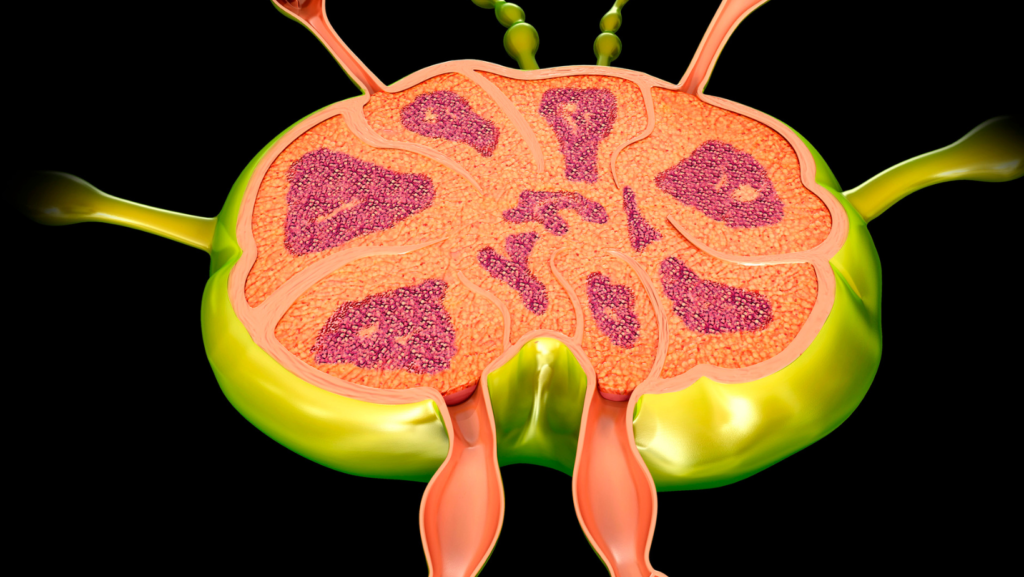
Swollen lymph nodes are often the result of an infection, such as a cold or the flu. However, there are other causes of swollen lymph nodes as well. In this article, we will explore what causes painful swollen lymph nodes and how they can be treated. We will also look at some of the risks associated if you develop swollen lymph nodes.
Fungal infections, such as histoplasmosis and coccidioidomycosis, can cause swollen lymph nodes. These infections are usually mild and do not require treatment. However, in some cases, they can be more serious and require antifungal medication.
Viral infections, such as the Epstein-Barr virus and HIV, can result in a swollen lymph node. These infections can be serious and require treatment. In some cases, they can lead to death.
Bacterial infections, such as strep throat and tuberculosis, can cause swollen glands. These infections can be serious and require treatment with antibiotics.
Autoimmune disorders occur when the body’s immune system attacks healthy cells. This can cause a variety of symptoms, including swollen lymph nodes. Some examples of autoimmune disorders that can cause swollen lymph nodes are rheumatoid arthritis, lupus, and Crohn’s disease.
Sarcoidosis is a condition that causes inflammation in the body. This inflammation can lead to the formation of granules in the lymph nodes, which can cause them to swell. Sarcoidosis is treated with steroids, immunosuppressants, and other medications.
Certain medications, such as penicillin, can cause an allergic reaction that leads to swollen lymph nodes. If you experience swollen lymph nodes after taking a medication, you should talk to your doctor about changing medications.
Cancer can also cause swollen lymph nodes. The cancerous cells can travel to the lymph nodes and causes them to swell. If you notice swollen lymph nodes that do not go away or that are accompanied by other symptoms, such as fatigue or weight loss, it is important to see a doctor as this could be a sign of cancer.
The common cold and the flu are both viruses that can cause swollen lymph nodes. The lymphatic system can become inflamed and swell in response to the virus. These infections are usually mild and will resolve on their own. However, if you have a fever, sore throat, or other symptoms, it is important to see a doctor as this could be a sign of a more serious infection.
An abscessed tooth is a dental infection that can cause swollen lymph glands. The infection can spread from the tooth to the lymph nodes, causing them to swell. If you have an abscessed tooth, it is important to see a dentist as soon as possible as this could lead to more serious complications if ignored.
A sinus infection is an infection of the sinuses that can cause swollen lymph nodes. The infection can spread from the sinuses to the lymph nodes, causing them to swell. If you have a sinus infection, it is important to see a doctor as this could lead to more serious complications if left untreated.
Mononucleosis, also known as mono, is a viral infection that can cause swollen lymph nodes. The virus usually goes away on its own, but in some cases, it can be more serious and require treatment.
Lyme disease is a bacterial infection that can cause swollen lymph nodes. The infection is usually transmitted through the bite of a tick. If you have Lyme disease, it is important to see a doctor as soon as possible as this could lead to more serious complications if not taken seriously.

There are some risks associated with swollen lymph nodes. If the lymph nodes are swollen from an infection, the infection could spread to other parts of the body. This could lead to more serious complications. In some cases, swollen lymph nodes can also be a sign of cancer. If you have swollen lymph nodes that do not go away or that are accompanied by other symptoms, it is important to see a doctor as this could be a sign of cancer.
How to treat swollen lymph nodes depends on the underlying cause. If the enlarged lymph is due to an infection, the infection will usually resolve on its own. However, if the inguinal lymph nodes are due to cancer, more aggressive treatment may be necessary. In some cases, surgery may be necessary to remove the cancerous cells. radiation therapy and chemotherapy may also be used to treat cancer. If the lymph nodes are swollen due to an autoimmune disorder, treatment will focus on managing the symptoms of the disorder. This may include the use of steroids, immunosuppressants, and other medications.
There are some home remedies that may help to reduce the swelling of lymph nodes. These home remedies include:
If the lymph nodes are swollen due to an infection, it is important to see a doctor as this could lead to more serious complications. In some cases, swollen lymph nodes can also be a sign of cancer. If you have lymph node swelling that does not go away or that is accompanied by other symptoms, it is important to see a doctor as this could be a sign of cancer.
There are some things you can do to prevent swollen lymph nodes. If you have an infection, such as a cold or the flu, it is important to get treatment as soon as possible. This will help to prevent the infection from spreading and causing the lymph nodes to swell. It is also important to practice good hygiene and to avoid close contact with people who are sick. If you have an autoimmune disorder, it is important to see a doctor and follow their recommended treatment plan. This will help to prevent the disease from progressing and causing the lymph nodes to swell.
Swollen lymph nodes can be caused by many different things. In most cases, the cause is not serious and the lymph nodes will go down on their own. However, in some cases, swollen lymph nodes can be a sign of something more serious. If you have swollen lymph nodes that do not go away or that are accompanied by other symptoms, it is important to see a doctor as this could be a sign of cancer.